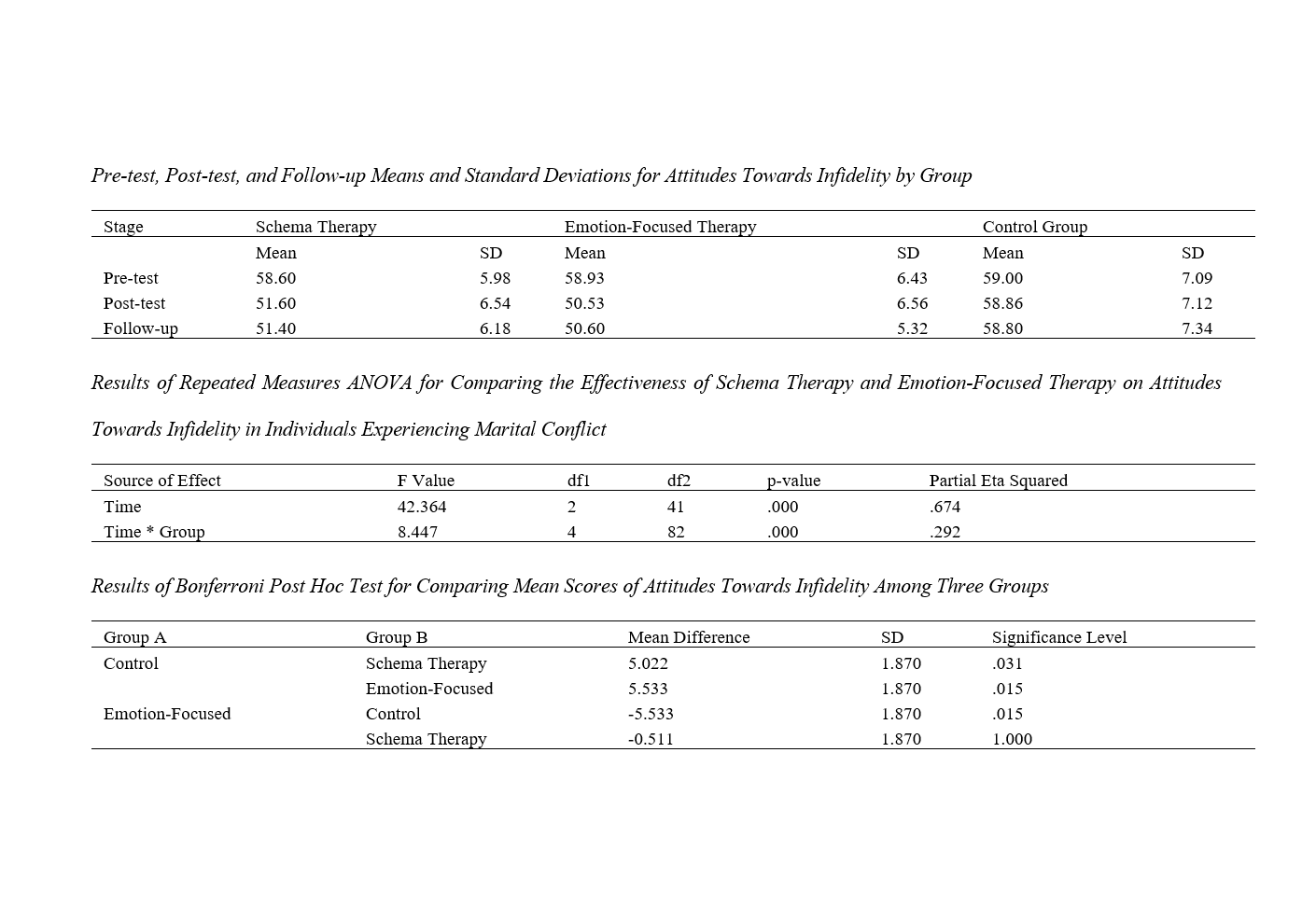Efficacy of Emotion-Focused Couple Therapy on Intimacy, Marital Adjustment, and Forgiveness among Couples with a History of Extramarital Affairs
Keywords:
Emotion-Focused Couple Therapy, intimacy, marital adjustment, forgiveness, couples, extramarital relationshipsAbstract
Objective: The current study aimed to examine the effectiveness of Emotion-Focused Couple Therapy (EFCT) on intimacy, marital adjustment, and forgiveness among couples with a history of extramarital affairs.
Methods: The research design was a quasi-experimental pretest-posttest with a control group. The study population included all women in Tehran who were affected by their husbands' extramarital relationships in 2022. A sample of 30 women affected by such relationships and visiting counseling centers in District 2 of Tehran was selected through convenience sampling and randomly assigned to either the experimental or control group in equal numbers. The research instruments included the Thompson and Walker (1983) Intimacy Scale, the Spanier (1976) Marital Adjustment Questionnaire, and the Rye et al. (2001) Forgiveness Questionnaire. The experimental group received EFCT in eight 60-minute sessions over a month; the control group was placed on a waiting list. Data were analyzed using repeated measures analysis of variance with the aid of SPSS version 23 software.
Findings: The findings indicated that EFCT significantly improved intimacy (p < 0.01), marital adjustment (p < 0.01), and marital forgiveness (p < 0.01).
Conclusion: It can be concluded that Emotion-Focused Couple Therapy effectively enhances intimacy, adjustment, and forgiveness in couples with a history of extramarital affairs.
Downloads

Downloads
Additional Files
Published
Issue
Section
License

This work is licensed under a Creative Commons Attribution-NonCommercial 4.0 International License.




















